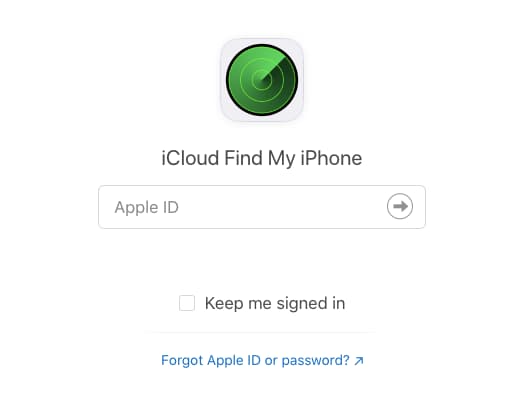A Safe Web gateway (SWG) is a crucial tool to help limit inappropriate Web surfing that may expose the company to viruses and malware or cause workers to lose productivity.
SWGs provide granular control of applications and users, blocking or allowing access based on URL categorization. Additionally, they integrate with security operating platforms for broader protection against threats.
Enhanced Malware Protection
URL filtering service blocks access to websites that contain malware, proxies, botnets, spyware, and phishing. It helps organizations keep employees focused and productive, reduces the risk of malware outbreaks that can bring business to a halt, and protects personal information from inadvertent disclosure.
Using granular policies based on URL categories, users or user groups, departments, machines, and more, web filtering allows or denies access to Internet sites. It can also use algorithms to categorize related sites automatically so that IT administrators don’t have to rely on employee awareness or trust that employees will avoid dangerous places.
While stand-alone URL filtering can effectively control Web browsing and mitigate threats, it often lacks visibility and integration capabilities to block sophisticated attacks that exploit other vulnerabilities, attack stages, or threat vectors. For example, a single website that was safe today could suddenly be used as a platform for ransomware or phishing in minutes.
To stop these advanced, zero-day threats, secure web gateways must include sandboxing and dynamic analysis, which can identify new code or behaviors and quickly update protections. In addition, next-generation firewalls with a security operating platform enable unified policies for seamless integration with granular web controls. It provides comprehensive coverage of malware threats that could otherwise evade detection. In addition, the URL filtering service uses machine learning with static and dynamic analysis to accurately determine category and risk ratings. Then, it integrates into the next-generation firewall policy for complete, centralized control.
Improved Bandwidth Capacity Management
Many organizations rely on a safe web gateway to block malware infections and other threats, enforce corporate and regulatory policies, and filter content. The SWG enhances the overall network security posture by connecting to other security solutions.
SWGs function as a proxy and analyze internet traffic, identifying possible risks, vulnerable data, and dangerous code that bypasses traditional firewalls and antivirus software. They monitor incoming and outgoing data, inspect SSL, and inspect URL categories based on user, group, or computer. Based on the results of these scans, a SWG will either deny or permit access to websites or specific web application services.
Cybercriminals have become experts at web impersonation, using legitimate websites such as Facebook, Microsoft, Apple, Dropbox, or Google to fool unsuspecting users into visiting bogus websites containing harmful links or collecting sensitive information. To prevent accidental data leaks, SWGs detect these attacks by scanning for recognizable watermarks, metadata, or other indicators in file uploads.
A Next-Gen SWG also offers remote browser isolation, which stops harmful code or data from entering the enterprise network by executing the content in a virtual container isolated from the endpoint. It allows employees to work without interruption and boosts productivity. Combined with the policy capabilities of Absolute ZTNA and Absolute Insights for Network, a SWG can improve the overall end-user experience and network health by detecting unhealthy network connection applications and enabling quick remediation.
Enhanced Security
Modern SWGs also offer a variety of other security capabilities that complement URL filtering. These include malware detection using signatures, behavioral analysis, and SSL inspection to reveal risks hiding in encrypted traffic. They can also prevent the spread of threats between employees by enforcing application controls to limit the use of non-approved web applications. It prevents users from inadvertently downloading malicious code and enables enterprises to meet compliance requirements for data protection, phishing, and SMiSh prevention.
With cyberattacks snowballing, a complete security strategy is necessary for corporate networks. Unlike traditional firewalls, SWGs can analyze every data that flows through them to and from the internet. It is crucial to detect attacks that may take advantage of user actions, such as opening a malicious attachment on a personal email account or downloading malware from a trusted destination like a shopping website.
Lastly, SWGs can protect organizations from accidental data leaks by scanning uploaded documents and images for crucial watermarks or identifying sensitive information in metadata. It can also be applied to document translation and linguistic analysis so that users are not unintentionally sending corporate secrets to adversaries.
It is important to note that although modern SWGs offer a wide range of security capabilities, they should be configured carefully. Otherwise, a company could block sites employees need to perform their jobs, such as social media and fantasy sports websites. It can lead to productivity problems and additional work for the IT helpdesk.
Increased Productivity
URL filtering restricts web content to prevent users from accessing unsafe or unproductive destinations. It is also essential to combat cybercriminals who have become increasingly sophisticated in impersonating the websites of well-known brands such as Facebook, Dropbox, Google, and Microsoft. These fake sites lure unsuspecting users into clicking malicious links that download malware or disclose personal information.
To help ensure employees have a productive and safe browsing experience, secure web gateway (SWG) software should include:
- Features that prevent the download and upload of executable files.
- Potentially dangerous file types.
- Malware in general.
It should also be able to detect and block sites that are known to host malware or phishing content.
Effective URL filtering solutions employ modular policies fine-tuned for multiple groups. For instance, HR departments may require unrestricted access to LinkedIn, while IT teams would benefit from more restrictive policies.
When a user tries to access a website, the SWG checks it against current security policies to decide whether to permit or deny access in real time. In addition, advanced solutions can automatically update protections by sharing threat intelligence from the WildFire malware prevention service and other sources to update protections against new attacks within seconds. It is a crucial feature, as many of today’s threats bypass traditional firewall protections through encrypted web traffic.



